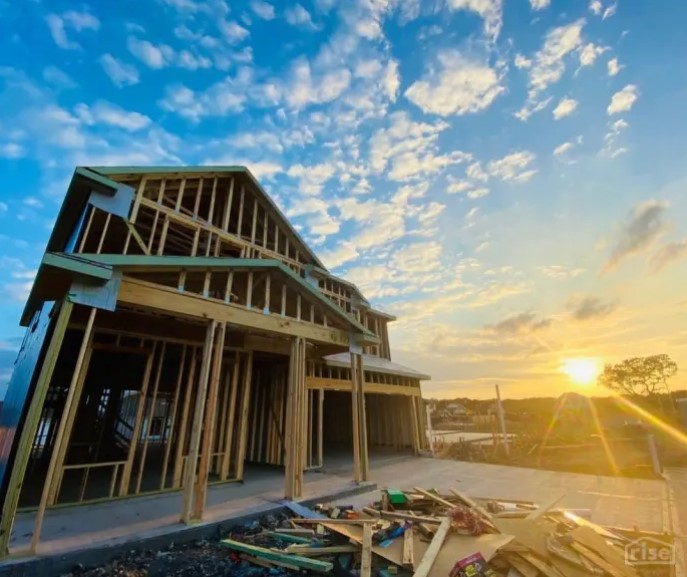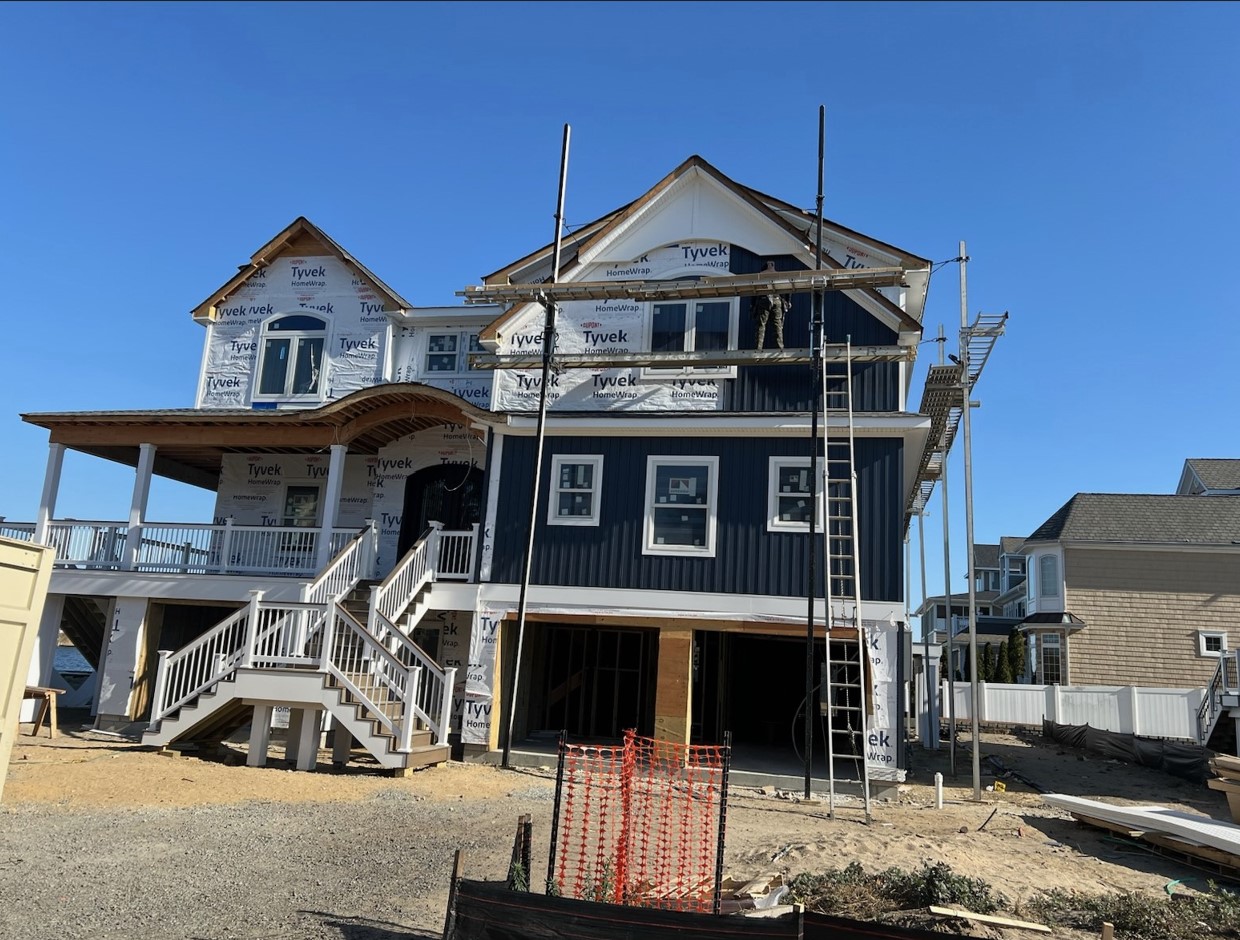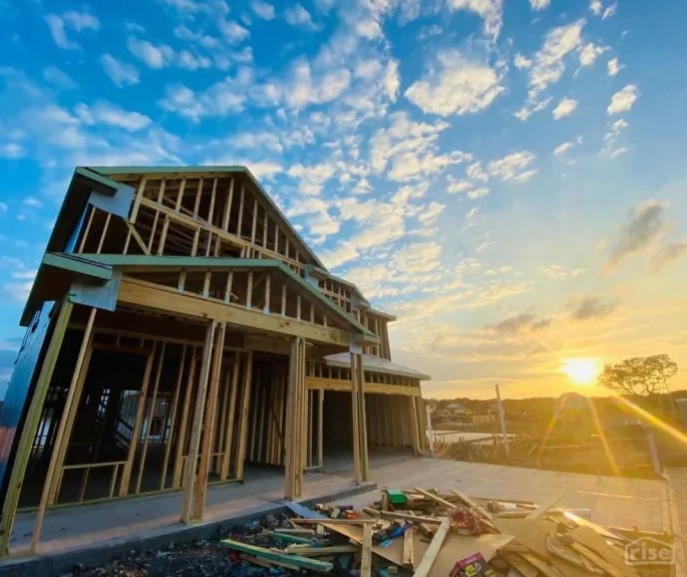
Energy efficiency and sustainability have become increasingly important factors in the New Jersey construction industry.
With rising energy costs and a growing concern for the environment among state officials, more homebuyers are looking for ways to decrease their environmental impact and save money on utility bills.
In response to this demand, MSC Enterprises, LLC continues to deliver Energy Star certified homes. Here’s why building Energy Star certified new home construction in New Jersey is a smart choice for both homeowners and the environment.
What is Energy Star?
Energy Star is a voluntary program run by the U.S. Environmental Protection Agency (EPA) that promotes energy efficiency in various industries, including new home construction. In order for a home to be considered Energy Star certified, it must meet strict guidelines set by the EPA for energy efficiency.
These guidelines include using high-quality insulation, efficient heating and cooling systems, and energy-efficient windows and doors. In addition, homes must undergo third-party testing to ensure they meet the energy efficiency requirements.
Not only does building an Energy Star certified home help reduce carbon emissions and protect the environment, it also provides a lot of benefits for homeowners. Some of these advantages include lower utility bills, improved indoor air quality, and increased comfort and durability of the home.
Benefits Of Energy Star Certified New Home Construction In New Jersey
Building an Energy Star certified home in New Jersey benefits homeowners and the environment. These homes use significantly less energy than traditional homes, resulting in lower utility bills.
In fact, according to the EPA, “ENERGY STAR certified homes are at least 10% more energy efficient than homes built to code and achieve a 20% improvement on average while providing homeowners with better quality, performance, and comfort.”
In addition to cost savings, Energy Star certified homes also provide improved indoor air quality. This is due to the use of high-quality insulation and proper ventilation systems, which help reduce pollutants and allergens in the home.
These homes are built for durability with features such as high-performance windows and doors. They can withstand harsh weather conditions and require less maintenance over time.
Also, the construction of Energy Star certified homes promotes the use of sustainable materials and practices, helping to reduce the overall environmental impact of the building process.
Why Choose New Jersey For Energy Star Certified New Home Construction?
New Jersey has been at the forefront of energy efficiency and sustainability initiatives, making it an ideal location for building Energy Star certified homes. The state offers a variety of incentives and programs to promote green building practices, including tax credits and rebates for homeowners who choose to build or renovate their homes to meet Energy Star standards.
Furthermore, New Jersey has some of the highest energy costs in the country, making the potential savings from an Energy Star certified home even more significant. According to the EPA, the average homeowner in New Jersey spends about $2,000 a year on energy bills. With ENERGY STAR, you can save 30% on utility bills. Through 2032, federal income tax credits are available to homeowners, that will allow up to $3,200 annually to lower the cost of energy efficient home upgrades by up to 30 percent.
Building an Energy Star certified home in New Jersey can also have a positive impact on the local community and economy. By reducing energy demand and carbon emissions, these homes help to create a more sustainable future for New Jersey.
Plus, with the growing demand for energy-efficient homes, building Energy Star certified new home construction in New Jersey can also help attract potential buyers and increase property value. And as more homes in the state become Energy Star certified, it helps to create a greener and healthier environment for all residents.
Is Energy Star Certified New Home Construction The Future Of Building?

With the increasing focus on sustainability and energy efficiency, it’s clear that Energy Star certified new home construction is a smart choice for homeowners and the environment. As more states and builders embrace these standards, it’s likely that Energy Star certified homes will become the norm rather than the exception.
Not only do these homes provide benefits for homeowners, but they also help to reduce the environmental impact of the construction industry. By using fewer resources and producing less waste, Energy Star certified new home construction helps to create a more sustainable future for our planet.
As technology continues to advance and new innovations are made in energy efficiency, it’s likely that Energy Star standards will continue to evolve and become even more stringent. This means that building an Energy Star certified home now not only provides immediate benefits, but also ensures long-term sustainability for homeowners.
As more homeowners become aware of the benefits and cost savings associated with Energy Star certified homes, the demand for these types of properties will continue to grow. This in turn will drive more builders to adopt these standards and create a positive cycle towards a greener and more energy-efficient future.
Can Older Homes Be Upgraded To Energy Star Certification?
While building a new energy efficient home in New Jersey is the ideal choice for maximum efficiency, it’s also possible to upgrade an existing home to meet Energy Star standards. This involves making various energy-efficient improvements such as installing new insulation, upgrading appliances and HVAC systems, and sealing air leaks.
There are some challenges when it comes to upgrading older homes to Energy Star certification. For example, some older homes may not have the necessary structural components or space for certain upgrades, making it difficult to meet all of the required criteria.
Additionally, the cost and effort involved in retrofitting an older home to meet Energy Star standards can be significant. This means that homeowners need to carefully consider their options and budget before deciding to upgrade their home to Energy Star certification.
Despite these challenges, upgrading an older home to Energy Star standards can still provide significant benefits in terms of energy savings and improved indoor air quality. It can also increase the overall value and marketability of the home, making it a worthwhile investment for homeowners in the long run.
Does Energy Star Certification Only Apply To Residential Properties?
While Energy Star is primarily known for its certification of residential properties, it also offers certifications for commercial buildings and industrial facilities. These certifications follow similar standards as the ones used for residential construction, focusing on energy efficiency, indoor air quality, and environmental sustainability.
In fact, according to the EPA, Energy Star certified buildings use 35% less energy and emit 35% less greenhouse gases compared to non-certified buildings. This not only results in cost savings for businesses, but also helps reduce the overall carbon footprint of commercial and industrial sectors.
In addition to certifications for new construction, Energy Star also offers a program for existing buildings called “Portfolio Manager,” which allows building owners to track and improve their energy performance over time. This program has been used by thousands of buildings across the country to reduce energy consumption and costs.
Also, similar to residential properties, Energy Star certifications for commercial buildings can also increase their market value and attract potential buyers or tenants. It demonstrates a commitment to sustainability and cost-effectiveness, making it an attractive option for businesses looking to reduce their environmental impact.
How Much Does It Cost To Obtain Energy Star Certification?
The cost of obtaining Energy Star certification varies depending on the type of property and the scope of the project. For residential properties, there is no initial fee for applying for certification. However, homeowners may incur costs related to any necessary upgrades or improvements to meet Energy Star standards.
For commercial buildings, the cost of obtaining Energy Star certification can range from a few hundred dollars for smaller buildings to thousands of dollars for larger facilities. This cost includes an application fee, as well as fees for any necessary third-party verification and energy performance testing.

Despite these costs, the long-term benefits of Energy Star certification usually outweigh the initial investment. The energy savings and potential increase in property value can provide a significant return on investment over time. Additionally, there are often incentives and rebates available from local utility companies or government programs to help offset the cost of obtaining certification.
Plus, the cost of not obtaining Energy Star certification can also be significant. Non-certified properties may have higher energy bills and a larger environmental impact, which can result in additional expenses for homeowners or businesses.
Mistakes To Avoid When Building An Energy Star Certified Home
There are several common mistakes that builders and homeowners should avoid when constructing an Energy Star certified home. Here are a few to keep in mind:
- Not following Energy Star guidelines: The most important step in building an Energy Star certified home is to carefully follow the guidelines set by the program. Failure to do so can result in disqualification from certification and potential issues with energy efficiency.
- Skimping on insulation: Adequate insulation is important for maintaining a comfortable and energy-efficient home. Cutting corners on insulation can lead to higher energy bills and a less efficient property.
- Ignoring air leaks: Air leaks can significantly impact the energy efficiency of a home. It’s important to properly seal all gaps and cracks to prevent air leakage and maintain a tight building envelope.
- Not investing in energy-efficient appliances: While they may cost more upfront, investing in energy-efficient appliances can result in significant savings over time. Plus, these appliances often have longer lifespans and require less maintenance.
- Focusing solely on energy efficiency: While energy efficiency is an important aspect of Energy Star certification, it’s also important to consider indoor air quality and environmental sustainability. Neglecting these aspects of the program can limit the overall benefits of certification.
By avoiding these common mistakes, builders and homeowners can ensure that their Energy Star certified home is truly efficient, comfortable, and sustainable.
Do Homes With Energy Star Certification Require Less Maintenance?
Homes with Energy Star certification typically do not require less maintenance compared to non-certified homes. However, they may require different types of maintenance to maintain their energy efficiency and overall performance.
For example, regular HVAC maintenance is necessary for all homes, but an Energy Star certified home may have more advanced features such as a high-efficiency furnace or air conditioning unit. These systems may require specialized maintenance to ensure they are functioning optimally.
Another aspect to consider is the building envelope, which includes components such as insulation and air sealing. While these elements help keep the home energy efficient, they may also require occasional upkeep or repairs to maintain their effectiveness.
In terms of ongoing costs, certified homes may require less maintenance due to their energy-efficient features. For example, a well-insulated home may not require frequent repainting or repairs due to moisture damage.
Tips for a Budget-Friendly Energy Star Certification
Obtaining Energy Star certification for a home or building can be a valuable investment, but it can also come with significant costs. Here are some tips to help make the process more budget-friendly:
- Plan ahead: It’s important to consider energy efficiency and sustainability during the initial design phase of a project. This can help avoid costly retrofits or upgrades down the road.
- Research available incentives: Many local utility companies and government programs offer incentives and rebates to offset the cost of obtaining Energy Star certification. It’s worth researching these options before beginning the certification process.
- Focus on key areas: Not every aspect of a property needs to be Energy Star certified. Focus on key areas such as the building envelope, HVAC systems, and appliances to maximize the energy efficiency of a property while minimizing costs.
- Consider DIY options: Some aspects of Energy Star certification, such as air sealing or installing energy-efficient lighting, can be done by homeowners themselves. This can help save on labor costs.
- Consult with a professional: Working with an experienced energy consultant can help identify the most cost-effective solutions for achieving Energy Star certification. They can also provide guidance on available incentives and potential savings.
By following these tips, homeowners and builders can work towards obtaining Energy Star certification while staying within their budget. So, it’s important to keep these points in mind during the planning and construction phases of a project.
Obtaining Energy Star Certification For A Home Or Building
Call on MSC Enterprises as your partner in building the perfect Energy Star Certified home. With our expertise in custom home construction and commitment to sustainability, we’re poised to bring your vision to life while ensuring a greener future for generations to come. Contact MSC Enterprises today to get started building your dream home, one that combines luxury, comfort, and environmental responsibility. Let’s create a home that reflects your values and exceeds your expectations.
Call 732-905-0005 or Contact Us for a New Jersey home Renovation consultation and quote
FAQs
Does Energy Star certification guarantee energy savings?
No, Energy Star certification does not guarantee energy savings. While it sets strict guidelines for energy efficiency, actual savings may vary depending on factors such as climate, usage habits, and maintenance.
How long does it take to obtain Energy Star certification?
The process of obtaining Energy Star certification can vary depending on the type of property and local requirements. Generally, it can take anywhere from a few months to over a year.
Can existing homes be Energy Star certified?
Yes, existing homes can be retrofitted to meet Energy Star guidelines and obtain certification. However, it may require more time and investment compared to incorporating energy efficiency measures during the initial construction phase.


